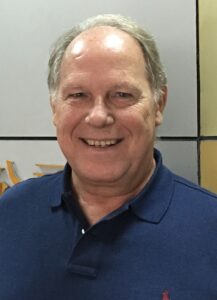
Prof. John R. Thome
John R. Thome is Professor-Emeritus of Heat and Mass Transfer at the Ecole Polytechnique Federale de Lausanne (EPFL), Switzerland since 1998. He obtained his PhD at Oxford University in 1978. Having retired in July 2018 at the EPFL, he has now founded a consulting/thermal engineering software company, JJ Cooling Innovation SÃ rl in Lausanne. He is also a Visiting professor at Brunel University in London and an Honorary professor at the University of Edinburgh to keep his “feet” in research while still supervising MS student theses at the EPFL. He is the author of five books on two-phase heat transfer and flow and has over 245 journal papers on macroscale and mircoscale two-phase flow, flow visualization, boiling/condensation heat transfer, flow pattern-based models, micro-two-phase cooling systems for electronics cooling together with thermosyphon simulation codes, 3D-inverse heat transfer methods for reducing multi-microchannel evaporator data, pulsating heat pipes for electronics cooling with a transient 1D numerical simulation tool, 3D numerical work on bubbly and slug flows in microchannels with in house, OpenFoam and modified commercial codes, etc. He has done numerous sponsored projects with IBM, ABB, Nokia Bell Labs, Carl Zeiss, CERN, etc. He received the 2017 Nusselt-Reynolds Prize, the ASME Heat Transfer Division’s Journal of Heat Transfer Best Paper Award in 1998, the United Kingdom’s Institute of Refrigeration J.E. Hall Gold Medal in 2008, the 2010 ASME Heat Transfer Memorial Award, the ICEPT-HDP 2012 Best Paper Award on a 3D-IC prototype with interlayer cooling (13’000 TVS’s and 260 microchannels inside), the ASME Journal of Electronics Packaging Best Paper Award in 2014, and the Outstanding Paper Award at InterPACK2017. He is editor-in-chief of the 16-volume series Encyclopedia of Two-Phase Heat Transfer and Flow (2016-2018). He founded the Virtual International Research Institute of Two-Phase Flow and Heat Transfer in 2014, now with 25 participating universities to promote research collaboration, sharing of experimental and numerical data, and education ( see http://2phaseflow.org). According to Google Scholar, he has over 22,700 citations.
